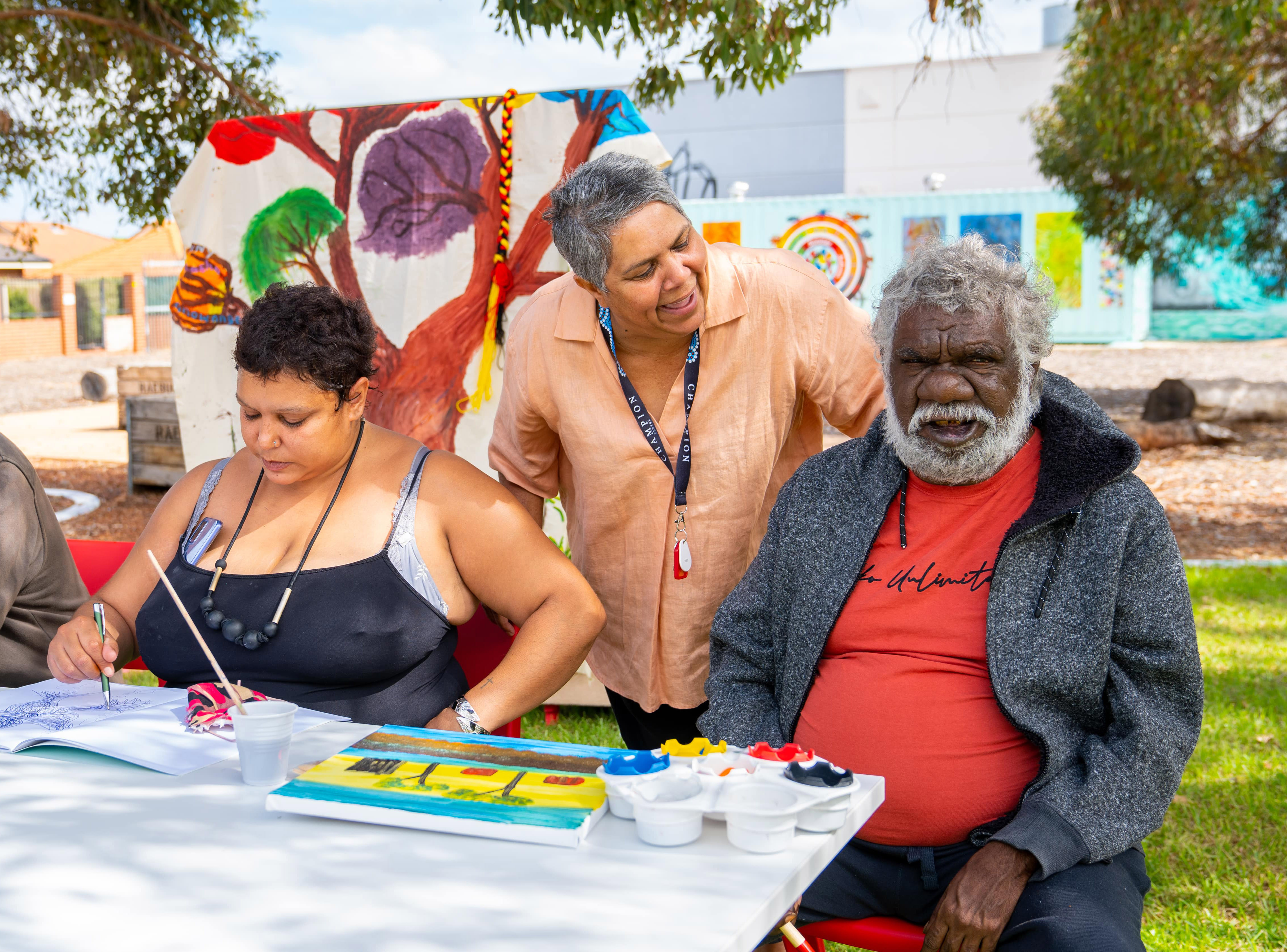 In an Australian first, an Edith Cowan University (ECU) research project has established in-community stroke and brain injury support groups run by, and catering to Aboriginal Australians, who are often underrepresented in rehabilitation services.
In an Australian first, an Edith Cowan University (ECU) research project has established in-community stroke and brain injury support groups run by, and catering to Aboriginal Australians, who are often underrepresented in rehabilitation services.
Brain Injury Yarning Circles aim to improve the health and wellbeing of Aboriginal Australians following a traumatic brain injury (TBI) or stroke by providing a culturally safe space with actions tailored to attendees’ wants and needs.
Yarning focuses on a range of issues that are facing participants as a result of their brain injury, and the circles offer activities such as a local Elders group, swap meets, art, dance, music, men’s and women’s days and excursions to culturally significant destinations.
Project lead Professor Beth Armstrong said the idea for Yarning Circles came from Aboriginal people who have lived experience of stroke and TBI, and was supported by previous research which identified a gap in the continuity of care of Aboriginal Australians following such incidents.
“Aboriginal Australians are known to suffer acquired brain damage as a result of stroke or TBI (caused by an incident such as a car accident, fall, or assault) 2-3 times more frequently than non-Aboriginal Australians,” Professor Armstrong said.
“Our research indicates that around 70% of Aboriginal people with brain injury in WA are from regional, rural or remote areas and we believe we’ve developed a model for brain injury support groups which can be used to create similar programs in other areas of the country.
“The essential component involves providing a culturally safe space that Aboriginal Australians will be comfortable with and will want to come back to.”
When people have a significant brain injury in WA, they are often transferred from regional, rural and remote areas to Perth for acute hospitalisation and rehabilitation: there are very few rehabilitation services in regional WA and no residential settings that specifically cater for people with brain injury.
This is particularly significant for Indigenous Australians because access to traditional lands is a major determinant of Aboriginal and TSI health, not just in remote contexts, but also for those living in non-remote and urban areas – leaving country can have negative implications for health and wellbeing.[1]
Similarly, data from 2018–19 shows that Indigenous Australians who had been removed from their families (for a variety of reasons – including medical treatment) had high or very high levels of psychological distress (38%) compared to those who were not (26%).1
KM Noongar Consultancy Services director and Noongar woman Kerri Colegate runs the Armadale Yarning Circle and emphasised that the service has been vitally important for participants needing to move to Perth for treatment.
“A lot of Aboriginal people have to come off-country for rehabilitation services and a lot of those people can be alone without their family here,” Ms Colegate said.
“So Yarning Circle was a really good opportunity for those people to come along and connect culturally, have their own cultural needs met and help fill that void when they’re missing their family.”
The program places a big emphasis on supporting not only the person living with a brain injury, but also their family members and carers who often have their lives significantly disrupted following a traumatic event involving a loved one.
“A lot of caring happens within families and within the home,” Ms Colegate said. “We have carers who look for support and information about brain injury, about what it actually is and how it impacts on the individual and the whole family as well.”
Brain Injury Yarning Circles is the result of a partnership between Edith Cowan University, Geraldton Regional Aboriginal Medical Service, Moorditj Koort Aboriginal Corporation and KM Noongar Consultancy Services, the WA Centre for Rural Health (UWA) and Murdoch University and is funded by the Neurotrauma Research Program.
Yarning Circles run from 10am-1pm each Wednesday at Champion Centre, Armadale, and from 10.30am-12.30pm fortnightly on Mondays at on-country locations in Mullewa.
The Geraldton Yarning Circle has been disrupted by COVID but there are plans to resume this group after the Easter school holidays, at Mitchell St Community Centre, Geraldton.
[1] Aboriginal and Torres Strait Islander Health Performance Framework 2020 summary report. (2020). Australian Institute of Health and Welfare. Page 18-28.

